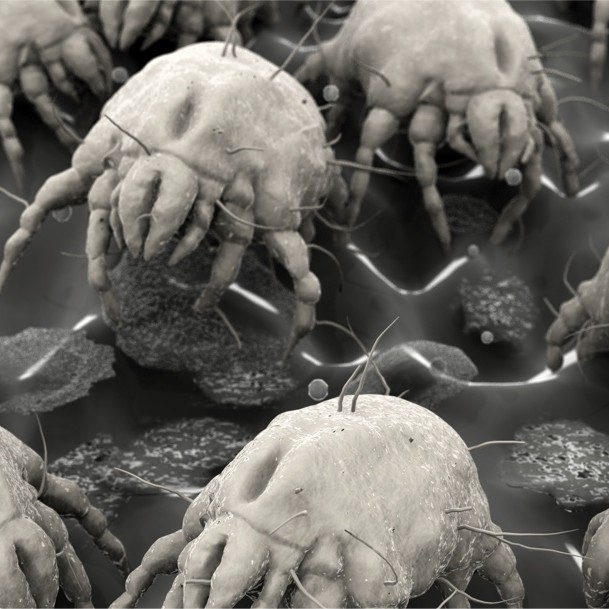When traveling, your hotel is your home away from home. But you and your family may have unwanted company — your hotel room could be a haven for germs, parasites, and other threats to healthy travel.
Before you book your next getaway, know what dangers could be lurking in hotel rooms and how to avoid travel sickness.
Poor Air Quality
Sub-par air quality in your hotel room can quickly put a damper on your trip and increase the chances that you’ll get sick.
“Stale air is unhealthy. It invites irritants into the body,” says Gaylen Kelton, MD, professor of clinical family medicine at the Indiana University School of Medicine and IU Travel Medicine in Indianapolis. “It can aggravate allergies and just be a nuisance.”
Cigarette smoke is a common irritant. Most hotels in North America offer the option of non-smoking rooms, but they may be harder to find internationally.
“In China, even though there are no-smoking signs on the walls in the hotel rooms, they still reek of smoke,” says Dr. Kelton.
If you do smell smoke or stale air, Kelton says it’s best to resist the urge to turn on the fan or air conditioner. If the air filters aren’t changed regularly, you could make matters worse and blow more irritants into your hotel room. Instead, open a window to get some fresh air into the room.
Germs in Unexpected Places
Most people expect to find germs on places like door handles and toilets in a public place like a hotel. But research shows the highest concentrations of germs in hotel rooms are often in places many people don’t hesitate to touch as soon as they set their bags down.
A small study of nine hotel rooms presented at the American Society for Microbiology in 2012 showed remote controls, telephones, carpets, and bedside lamp switches contained high levels of fecal and aerobic bacteria. Those types of bacteria could lead to gastrointestinal illnesses, among others.
Researchers found that cleaning items on maids’ carts, like mops and sponges, also had high levels of both types of bacteria. That raises the risk of spreading potentially disease-causing germs from room to room while cleaning.
To prevent hotel room germs from spoiling your trip, bring sanitizing wipes and wipe down high contact surfaces when you arrive. Also remember to wash hands frequently.
Slipping Risks
Germs may actually be the least of your worries in a hotel room bathroom, says Kelton. Bigger threats to healthy travel are slips and falls on unfamiliar territory. “More accidents happen in showers from falls than anything else when traveling,” says Kelton.
In hotel room bathrooms, you may encounter a different setup than you’re used to at home, and that can trigger falls, says Kelton. For example, you might have a walk-in shower at home, but at the hotel, you have to step into a tub shower. Or the floor may not have a mat or carpet and could become slippery when wet.
Another often-overlooked danger in the bathroom is scalds and burns. “Hotels have the hot water set at a higher temperature than at home, so you need to gauge the temperature appropriately,” says Kelton. “Kids may turn on the hot water all the way at home and be okay, but the hotel’s water is hotter.”
A final water warning for international travelers: Kelton says that if you aren’t going to drink tap water anywhere else on your trip, don’t do it at the hotel either. That means using bottled water to drink in your room as well as to brush your teeth.
Allergies and Sensitivities
Dust mites, down comforters, and other potential allergens might trigger the sniffles in particularly sensitive travelers — allergy and asthma sufferers, we mean you.
If you have allergies or sensitive skin, Kelton says it’s worth calling ahead to ask if the hotel offers allergy-friendly rooms or if they can tell you what cleaning products they use — harsh cleaning solutions or laundry detergents can also be irritating if you have sensitive skin. Some hotel chains will also allow you to pre-order foam rather than feather pillows.
Kelton also advises against trying the tempting free toiletries at hotels if you have sensitive skin. “Using a new soap or shampoo may cause some people to have a reaction,” he says.
Bed Bugs
What’s most surprising about bed bug infestations is that they’re still a problem. Since the late 1990s, they’ve had a worldwide resurgence. Bed bug infestations have now been reported in all 50 U.S. states, often in hotels.
The blood-sucking insects feed on people. Bed bug bites can start out as small pricks in the skin, but can grow and become inflamed and cause itching.
More than 40 disease-causing pathogens have been detected in bed bugs, but the good news so far is that there’s no definitive evidence that they transmit any disease to humans.
To reduce your risk of becoming a bed bug’s dinner or means of transport to its next meal, follow these steps:
- Check the mattress, box spring, and behind the headboard for signs of bed bugs. Signs may include brown spots (which could be the bugs’ feces) and bed bug skins, as well as any live bed bugs. The bugs tend to harbor in mattress piping.
- Do not put your luggage or other personal items on beds or other soft, upholstered furnishings that may harbor bed bugs. Put clothing and luggage on dressers or luggage racks.
- Keep your suitcases, briefcases, and computers and their cases closed when not in use.
Taking these precautions involves some legwork (and detective work), but it all translates to a better travel experience.
###
By Jennifer Warner
Medically reviewed by Pat F. Bass III, MD, MPH
October 24, 2013
everydayhealth.com
You may also be interested in . . .
Summer Allergies
What do you look forward to in the summer months? I bet it isn't summer allergies! Whether you are planning to be the grill master or the ultimate host of…
The Gross Truth About How Often You Should Replace Your Pillow
The Question: How Often Should I Replace My Pillow? The Answer: Nearly 70 percent of people say a comfortable pillow is very important to a good night's…
Dust Mites and Allergies
When I moved into my current home in Southern California nearly 20 years ago, I went searching for nontoxic paint, carpeting, and other furnishings. My…


